Picking the right baby detergent is a regular concern for new parents, and it’s easy to see why. Babies have sensitive skin and tend to make messes, so they need a laundry soap that’s gentle yet strong enough to handle tough stains. Parents should look for detergents made to keep baby skin safe from itching or rashes while still cleaning well. In this article, you’ll learn what makes a detergent good for babies, which features are important, the different types you can buy, and top choices to make laundry time easier and safer for your little one.
From spit-ups to pureed food and diaper leaks, washing baby clothes is different from washing grown-up clothes. Adults can use stronger soap with lots of scents, but babies need something mild. After reading this, you’ll know how to pick a detergent that leaves your baby’s clothes clean and soft, free from anything that might bother their tender skin.

What Is Baby Detergent and Why Use It?
Baby detergent is a special type of laundry soap made just for infants. Unlike regular detergents, baby products focus on being gentle and safe, aiming to reduce the chance of skin irritation or allergies. Babies have much more sensitive and absorbent skin, which means they can react more easily to leftovers from soap.
The main idea behind baby detergent is to wash away dirt and stains without using harsh chemicals. These are made with safer ingredients and avoid things that often cause problems in standard detergents. Knowing this difference helps you make the best choice for washing your baby’s clothes.
How Baby Detergent Is Different from Regular Detergent
The main way baby detergent and regular detergent differ is what goes inside. Regular detergents usually contain tough chemicals, heavy scents, dyes, and stain-brightening agents so they can clean hard and smell strong. These are fine for adult clothes, but they might irritate a baby’s sensitive skin. Fragrances, especially, can stay in the fabric and become a common cause of allergies or rashes.
On the other hand, baby detergents are usually made without scents or dyes and are labeled as hypoallergenic. They use plant-based or milder cleaning agents to get rid of stains. By leaving out the tough chemicals, these detergents help prevent skin issues like eczema or contact dermatitis, giving parents peace of mind.

Why Babies Need Their Own Laundry Detergent
Babies require their own version of laundry detergent because their skin is extra delicate and soaks up substances more easily. Dr. Blair Murphy-Rose, a dermatologist, states that newborns are especially sensitive and often react to things adults don’t notice. Even a tiny bit of harsh soap left on clothes can make a baby uncomfortable. It’s not until around age two that a child’s skin starts to become as strong as an adult’s.
Plus, babies get messy a lot-from meal spills to diaper accidents-so the detergent has to clean well without being tough on their skin. Finding a balance between stain removal and being gentle is why many parents choose a detergent made for babies.
What to Look For in the Best Baby Detergent
Picking a baby detergent from the many brands and types on the shelf can be confusing. But if you zoom in on a few main features, the choice gets easier. The best baby detergent skips most irritants, uses more natural ingredients, and cleans well without harming the skin.
Your goal is to find soap that gets clothes truly clean but won’t lead to itchiness or rashes, so your child can play and rest comfortably.

Labels: Hypoallergenic and Fragrance-Free
When picking a detergent, two important words to find on the bottle are “hypoallergenic” and “fragrance-free.” “Hypoallergenic” means the detergent is less likely to cause allergies-even though it’s not legally defined, it’s still a helpful sign. Dermatologists, such as Dr. Murphy-Rose, suggest looking for both of these terms since newborn skin reacts more than older kids’ skin. Scents are a major cause of skin problems, especially since they’re often made with lots of different chemicals that stay in the fabric after washing.
Dyes can cause trouble, too, so look for soaps without color added. Picking a detergent that clearly says it skips both fragrances and dyes is one of the easiest ways to avoid skin reactions for your baby.
Avoiding Strong Chemicals and Common Allergens
The best baby detergent does more than just avoid dyes and perfume. It should also not have certain strong ingredients often found in standard laundry soaps. Some of these ingredients include sulfates (like SLS/SLES), phthalates, parabens, phosphates, optical brighteners, chlorine bleach, or NPEs. These can hurt sensitive skin-SLS and SLES, for example, make a lot of bubbles but can dry out skin or make eczema worse. Other ingredients can upset hormones or harm nature.
For example, brighteners just make clothes look whiter but don’t actually get them cleaner and can be tough on the skin. Bleach is damaging and lets off strong fumes. NPEs are very toxic. Looking at ingredient lists and avoiding these chemicals reduces your baby’s risk of skin issues and also lessens their exposure to harmful things.
Natural and Plant-Based Ingredients
Choosing soaps made with more natural or plant-based ingredients is a safe approach. These use gentle cleaners from plants that get out stains without rough chemicals. Essential oils are sometimes added (in small amounts and with care) for scent. Certain plant-based enzymes help lift out tough stains naturally.
Some parents worry that “natural” means “not effective,” but plant-based formulas can clean well and often have natural antibacterials. Look for certifications like “USDA Organic,” “USDA Certified Biobased Product,” or “EPA Safer Choice” to check if the claims are real. These stamps help you pick something safe for your baby and the environment.
Is the pH Level Right for Babies?
The pH of detergent is important for very young children. Baby skin is more alkaline and not as balanced as adult skin. If the pH is too high, it dries out or irritates the skin, possibly causing infection.
The best detergents for babies have a gentle pH balance. Even when labels don’t list the exact pH, products that highlight being for baby skin, hypoallergenic, and free of strong chemicals usually keep pH in mind. This extra care goes a long way in keeping your child’s skin healthy.
Cleaning and Stain Removal
Gentleness is important, but so is strong cleaning power. Babies create a lot of mess! The best detergent can handle milk, foods, dirt, and anything else babies throw at their clothes. You want a detergent that gets rid of stains without needing lots of pre-treating or repeat washes-which could actually add more exposure to soap.
Many of the top-rated baby detergents use plant-based enzymes to break down stains from food, spit-up, and more. Read reviews from other parents about how well a detergent works on sticky baby messes. The best soap leaves baby clothes soft, stain-free, and safe for everyday wear.
Types of Baby Detergent: Liquids, Powders, Sheets, and Pacs
Baby detergents come in several forms: liquids, powders, sheets, and pods (pacs). Each one has some upsides and downsides depending on ease of use, cost, and how well they work. Knowing what’s available helps you pick what works best for your home and how you do laundry.
Some people like liquid for the flexibility, some want less mess, and some care about being green. Here’s a breakdown to help you decide:

Pros and Cons Table
| Type | Pros | Cons |
|---|---|---|
| Liquid |
|
|
| Powder |
|
|
| Sheets |
|
|
| Pacs/Pods |
|
|
How to Pick the Right Form
Your choice can depend on your washing machine, if you want things to be easy, how much storage you have, and your budget. Liquids are normally a safe bet for all water types and are easy to use, especially if you like to adjust the amount. Sheets or pods are less messy, travel well, and often have eco-friendly packaging, but are not always as strong on very stubborn stains. If budget matters most, powder is often cheapest but check for white residue that could irritate skin. Test out a new detergent with a few clothes before regular use to make sure it agrees with your baby’s skin.
Best Baby Detergents by Need
There’s no single “best” baby detergent for every family. The right choice depends on what your baby’s skin needs, your favorite ingredients, and how much you want to spend. Here are top picks in several categories to help you find what suits your family best:
-
For newborns:
- Tide Free & Gentle Liquid: Fragrance-free, dye-free, accepted by groups like the National Eczema Association and the National Psoriasis Foundation. Strong at cleaning but easy on delicate skin.
- Dreft Stage 1: Newborn: Hypoallergenic and made just for brand-new babies, famous for its soft scent (but may not suit those who need unscented products).
-
For sensitive skin or eczema:
- Honest Hypoallergenic Baby Laundry Detergent: Free from harsh irritants, gentle formula, approved by the National Eczema Association.
- All Free Clear Detergent: Hypoallergenic, no scents or dyes, and given the National Eczema Association’s seal as well as the EPA Safer Choice label.
-
For organic and eco concerns:
- Whole Foods Market 365 Organic Laundry Detergent: USDA Organic, at least 95% organic ingredients, low price per wash, in a recyclable jug.
-
For convenience (sheets and pacs):
- Ecos Plastic-Free Laundry Detergent Sheets: Hypoallergenic, no scents or dyes, easy to use, low waste packaging.
- Amazon Basics Laundry Detergent Pacs: Fragrance-free, dye-free, gentle, works in all washers, but store out of reach of children.
-
For saving money:
- Arm & Hammer Sensitive Skin Free & Clear: Very low cost per load, gentle, skips top skin allergens, recyclable package.
-
Fragrance-free options:
- Seventh Generation Free & Clear: Strong cleaning with plant-based enzymes, no dyes or scents, has the EPA Safer Choice Label and USDA Certified Biobased stamp.
- Dreft Pure Gentleness: Plant-based, no dyes, fragrances, or chemical brighteners, gentle for newborns and older babies.
- Method 4x Concentrated: Hypoallergenic, no dyes, fragrances, parabens, or phthalates, biodegradable.
Well-Known Baby Detergent Brands
Many brands are famous for their baby detergents. Some have been around for decades, while others are newer companies focused on sensitive skin or earth-friendly products. Here are a few you’ll see often in stores:
Dreft’s Range
- Stage 1: Newborn: For the first months-hypoallergenic and gentle, with mild scent.
- Stage 2: Active Baby: For crawling and mealtime messes-more enzymes for tougher stains.
- Pure Gentleness: Mostly plant-based, fragrance-free for all baby stages.
- Family Friendly: Scent-free, good for washing all the family’s clothes together if needed.
Dreft also sells scent boosters, stain sprays, and an Eco-Box with less plastic.
Seventh Generation Free & Clear
This concentrated detergent cleans well and skips scents and dyes. Its plant power removes tough stains. It’s certified kind to both the earth and the skin.
The Honest Company
The Honest Company, known for selling safe and green products, makes a baby detergent that leaves out most harsh ingredients and perfume. Doctors often recommend it for sensitive skin. It uses a mix of four enzymes to break down different stains and avoids a long list of common irritants.
All Free Clear
This is a go-to for sensitive skin and for people with allergies. It’s gentle, leaves out dyes and scents, and works well on tough marks like chocolate or mud. It also has the Eczema Association and EPA safety seals.
Arm & Hammer Sensitive Skin Free & Clear
This low-cost liquid detergent is well-reviewed for being gentle and safe for babies with sensitive skin. While it might need a little help with stubborn stains, it’s affordable and skips the most common irritants.
More Choices
- Ecos Plastic-Free Sheets – Great for sustainability and travel.
- Amazon Basics Pacs – Easy to use, no fragrances or dyes.
- ATTITUDE – Listed as safe by the EWG, focused on clean ingredients.
- Method 4x Concentrated – Not only for babies, but good for sensitive skin.
- Ecoegg Laundry Egg – Uses mineral pellets, no harsh chemicals, but needs pre-treatment for deep stains.
Tips for Picking the Best Baby Detergent
With so many bottles and boxes on the store shelves, choosing can feel stressful. But the best choice for your family comes down to matching the detergent to your baby’s skin, your values, and your budget.
Here are steps to help:
Check Labels
Don’t just look at the front-read the small print on the back. “Natural” and “gentle” aren’t always proof. Read the actual ingredient list. Choose detergents that clearly say “fragrance-free,” “dye-free,” and “hypoallergenic.” Avoid soaps with sulfates, phthalates, parabens, phosphates, optical brighteners, or formaldehyde releasers.
Certifications like “USDA Organic,” “EPA Safer Choice,” and “Leaping Bunny” mean the detergent has been checked for safety, but always confirm with the full ingredient list.
Think About the Environment
Detergent can harm nature, especially ingredients like phosphates, which upset waterways, or harsh chemicals that don’t break down. Plastic bottles pile up in the landfill, too. Choose brands and formulas that are plant-based, biodegradable, and skip major polluters, and look for recyclable or refillable packaging or concentrated formulas. Labels like “EPA Safer Choice” guide you to the most earth-friendly picks.
Compare Prices and Loads
Baby detergents are sometimes more expensive than regular ones but compare the cost per load-not just bottle size. Concentrated soaps may cost more upfront but last longer. Bulk or subscription options can save money. Some brands, like Arm & Hammer Sensitive Skin, are both bargain-priced and gentle. Staying within your means but choosing the right kind keeps your baby’s clothes safe and your wallet happy.
Ask a Pediatrician
If your child has allergies, eczema, or keeps having skin troubles, talk to your doctor. Pediatricians and dermatologists know what formulas work for special needs, and they can help you find something safe for your baby. Each baby is different-what helps one child may not help another. Your doctor can steer you in the right direction, keeping your baby’s skin comfortable and healthy.

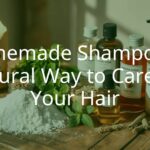

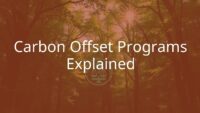

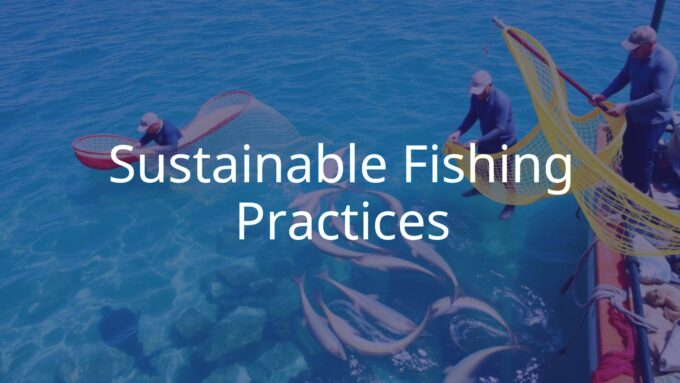

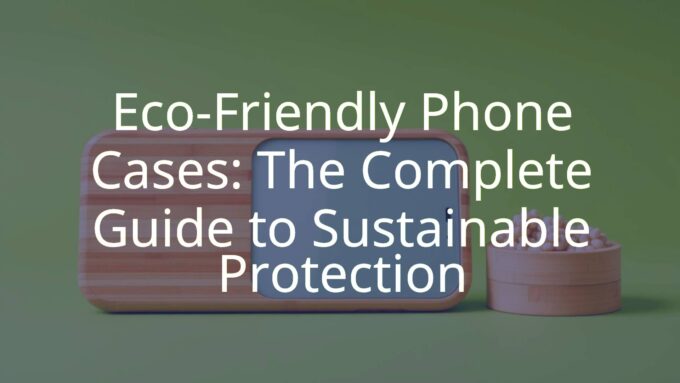

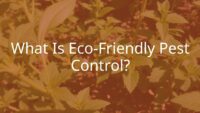

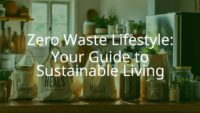
Leave a comment